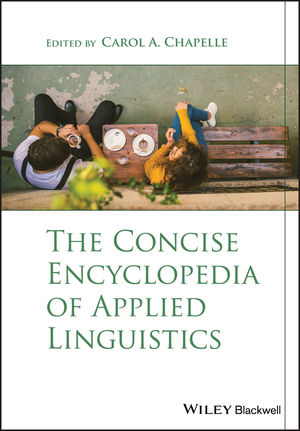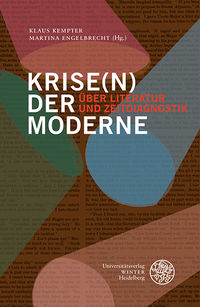The concise encyclopedia of applied linguistics
 Applied linguistics is an interdisciplinary field that identifies, examines, and seeks solutions to real-life language-related issues. Such issues often occur in situations of language contact and technological innovation, where language problems can range from explaining misunderstandings in face-to-face oral conversation to designing automated speech recognition systems for business. The Concise Encyclopedia of Applied Linguistics includes entries on the fundamentals of the discipline, introducing readers to the concepts, research, and methods used by applied linguists working in the field. This succinct, reader-friendly volume offers a collection of entries on a range of language problems and the analytic approaches used to address them.
Applied linguistics is an interdisciplinary field that identifies, examines, and seeks solutions to real-life language-related issues. Such issues often occur in situations of language contact and technological innovation, where language problems can range from explaining misunderstandings in face-to-face oral conversation to designing automated speech recognition systems for business. The Concise Encyclopedia of Applied Linguistics includes entries on the fundamentals of the discipline, introducing readers to the concepts, research, and methods used by applied linguists working in the field. This succinct, reader-friendly volume offers a collection of entries on a range of language problems and the analytic approaches used to address them.
This abridged reference work has been compiled from the most-accessed entries from The Encyclopedia of Applied Linguistics (www.encyclopediaofappliedlinguistics.com), the more extensive volume which is available in print and digital format in 1000 libraries spanning 50 countries worldwide. Alphabetically-organized and updated entries help readers gain an understanding of the essentials of the field with entries on topics such as multilingualism, language policy and planning, language assessment and testing, translation and interpreting, and many others.
Accessible for readers who are new to applied linguistics, The Concise Encyclopedia of Applied Linguistics:
- Includes entries written by experts in a broad range of areas within applied linguistics
- Explains the theory and research approaches used in the field for analysis of language, language use, and contexts of language use
- Demonstrates the connections among theory, research, and practice in the study of language issues
- Provides a perfect starting point for pursuing essential topics in applied linguistics
Designed to offer readers an introduction to the range of topics and approaches within the field, The Concise Encyclopedia of Applied Linguistics is ideal for new students of applied linguistics and for researchers in the field.
zum Buch im ULB-Katalog
zum Buch auf der Verlags-Website
Krise(n) der Moderne: Über Literatur und Zeitdiagnostik
 Ist die Krise ein konstitutives Phänomen der Moderne? Die Beiträge dieses Bandes, die auf eine interdisziplinäre Vortragsreihe der Neuphilologischen Fakultät der Universität Heidelberg zurückgehen, widmen sich dieser Frage anhand von literarischen Texten des 19., 20. und 21. Jahrhunderts.
Ist die Krise ein konstitutives Phänomen der Moderne? Die Beiträge dieses Bandes, die auf eine interdisziplinäre Vortragsreihe der Neuphilologischen Fakultät der Universität Heidelberg zurückgehen, widmen sich dieser Frage anhand von literarischen Texten des 19., 20. und 21. Jahrhunderts.
Im Dialog zwischen der Literaturwissenschaft und benachbarten kultur‑, sozial- und geschichtswissenschaftlichen Disziplinen zeichnen sie nach, wie ökonomische, politische und kulturelle Modernisierungsschübe als kollektive Krisenerfahrung in Werken der Weltliteratur ihren ästhetischen Ausdruck finden. Sie beleuchten Aspekte, in denen Literatur sozialwissenschaftlichen Methoden in der Beschreibung der Krise(n) der Moderne überlegen sein kann.
zum Buch im ULB-Katalog
zum Buch auf der Verlags-Website
Weitere Titel können Sie in unseren Neuerwerbungslisten für die Sprach- und Literaturwissenschaften allgemein entdecken!
